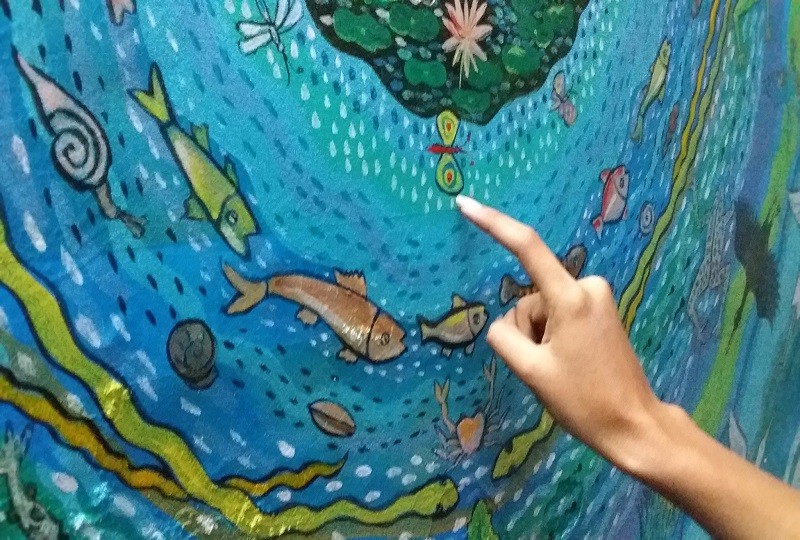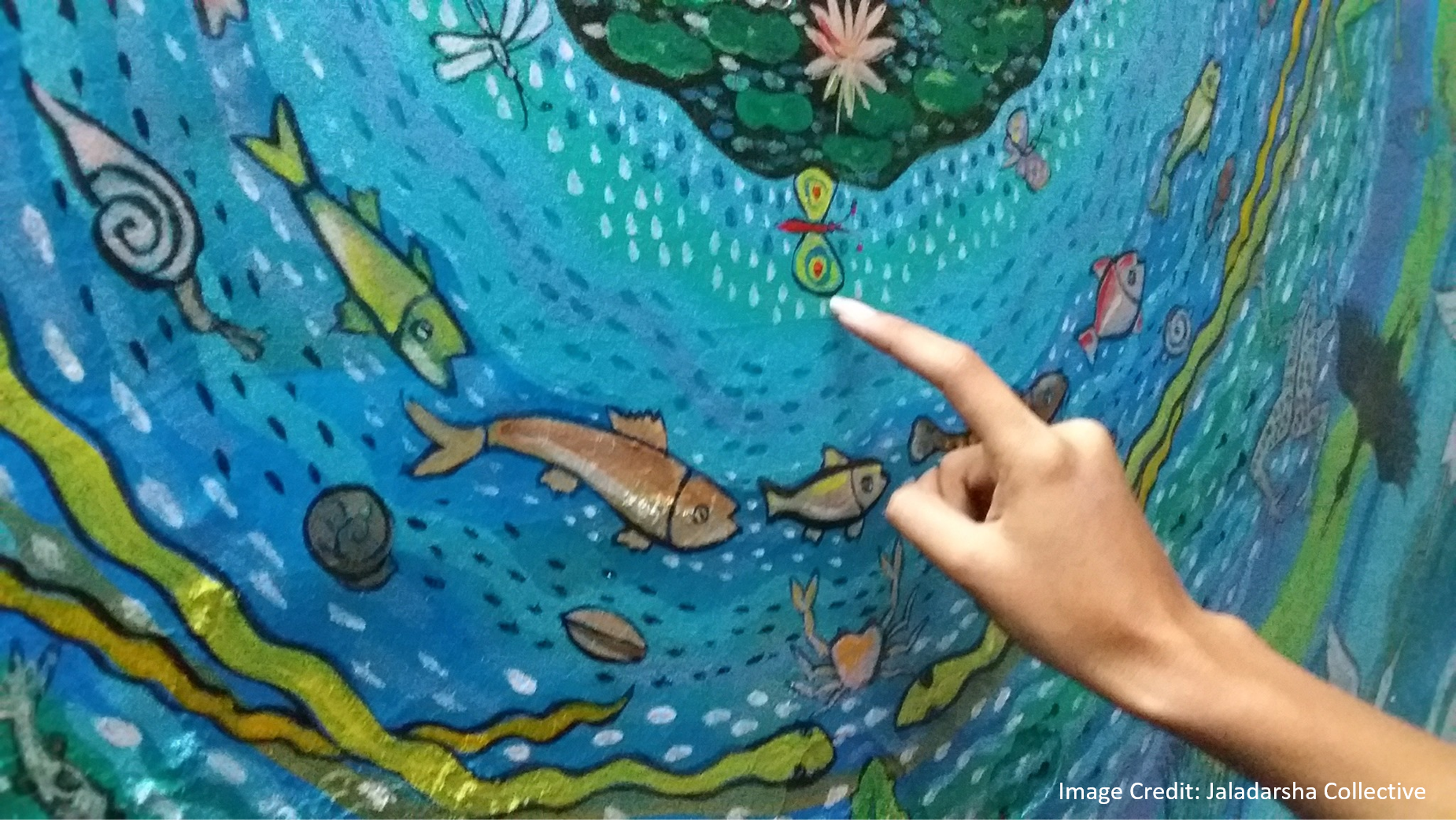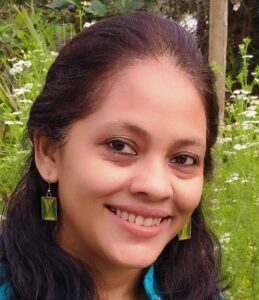
Environmental Placemaking: Water in the City

SPEAKER(S)
Sayantoni Datta
RESPONDENT
Anuradha Pathak
Jaladarsha Collective is a small interdisciplinary collective of artists, researchers, performers, process workers, and youth in the city of Kolkata. Focusing on intersectional environmentalism that advocates for the protection of both people and the planet, this collective, since 2019, works through micro social arts-based practices in the city and villages in and around Kolkata. Jaladarsha conducted water audits in the city of Kolkata (2021/2022), an audit on the canals of Kolkata (2024), and three community art festivals on water and the environment “Flows Beyond Barriers” (2022), “Roots and Rights: Indigenous Seed Festival” (2023) and “Towards Sustainable Flows” (2024). The collective continues its efforts on intersectional environmental initiatives with youth, women, and children, focusing on community art practices and research, and conservation-based livelihoods led by rural women – including the “Young Rural Women’s Leadership Building Programme” initiated in 2021.
In this presentation, Sayantoni Datta will share the work of Jaladarsha Collective and highlight the various ways in which the collective has tried to raise consciousness around water, its interconnected flows, and it’s collaborations on environmental placemaking.
The respondent in this conversation is Anuradha Pathak, an artist and co-director at CASP.
![]()
Join us on March 28, 2025
at 6:00pm IST
at 6:00pm IST
Meeting ID: 850 2762 8946 | Passcode: 119951

Sayantoni Datta is co-founder of the Jaladarsha Collective, which means “a mirror of water”, denoting the reflective work of the collective born to preserve our eco-cultural heritage and ensure water justice and water preservation. In 2001, she graduated from the Tata Institute of Social Sciences, Mumbai, with a specialisation on urban and rural community development. Her core experiences are in the area of indigenous rights, gender, and environmental justice. In 2018, she published a book at the Indian Institute of Advanced Study, Shimla, titled “Damuda: Sacred Water”, a retrospective journey which examined the environmental losses and conflicts along the Damodar Valley. In the past, she has conducted creative projects such as the “Landscapes of Dislocation” in Bokaro, Jharkhand, and has worked with several nonprofit organisations in Delhi as well.
